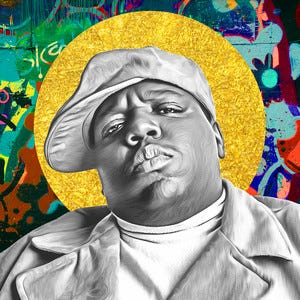5 DECADES OF GETTING JERKED
The world of hip-hop has undergone a remarkable transformation over the past four decades, and one significant aspect of this evolution has been the changing landscape of record deals. From the genre's humble beginnings in the Bronx in the 1970s to its global domination in the present day, hip-hop has seen its artists negotiate increasingly complex and diverse record contracts. In this article, we'll explore the key milestones and shifts in record deals within the hip-hop industry over the past 50 years.
Hip-hop emerged as a cultural phenomenon in the late 1970s, and during this period, record deals were often modest affairs. Many artists, like Grandmaster Flash and the Furious Five and Sugarhill Gang, signed with small, independent labels that had limited resources but a passion for the music. These deals typically provided artists with a small advance and a percentage of sales, often with unfavorable terms.
The 1990s marked the "Golden Era" of hip-hop, with iconic artists such as Tupac Shakur, The Notorious B.I.G., and Dr. Dre dominating the scene. This era saw the rise of major record labels like Def Jam, Interscope, and Bad Boy Records, which offered lucrative deals to talented artists. Artists often received substantial advances, extensive marketing budgets, and creative control over their music. However, these deals sometimes came with strict clauses that could limit an artist's independence.
The 2000s witnessed the digital revolution, with the rise of the internet and file sharing dramatically changing the music industry. Hip-hop artists like 50 Cent and Eminem continued to thrive, but traditional record sales began to decline. As a result, record deals started to shift towards 360-degree contracts, where labels sought a share of an artist's merchandise, touring, and other revenue streams in addition to music sales.
The 2010s brought a wave of independent artists to the forefront of hip-hop, thanks to the democratizing power of the internet and streaming platforms like SoundCloud and Spotify. Many artists chose to retain more control over their careers by staying independent or signing distribution deals rather than traditional record contracts. Streaming revenue became a primary source of income, further reducing the significance of record sales.
In the present day, social media plays a pivotal role in an artist's career. Platforms like Instagram, TikTok, and Twitter provide artists with direct access to their fan base, making them less reliant on traditional marketing strategies. Additionally, artists have become more entrepreneurial, leveraging their brands to secure sponsorship deals, fashion lines, and other revenue streams.
The evolution of record deals in hip-hop over the past 40 years reflects the broader changes in the music industry and the world at large. From modest beginnings to the digital age and the present era of independent entrepreneurship, hip-hop artists have navigated a complex landscape of contracts, royalties, and marketing strategies. As the genre continues to evolve, one thing remains clear: hip-hop's artists are more empowered than ever to shape their own destinies and build lasting legacies in the industry.







